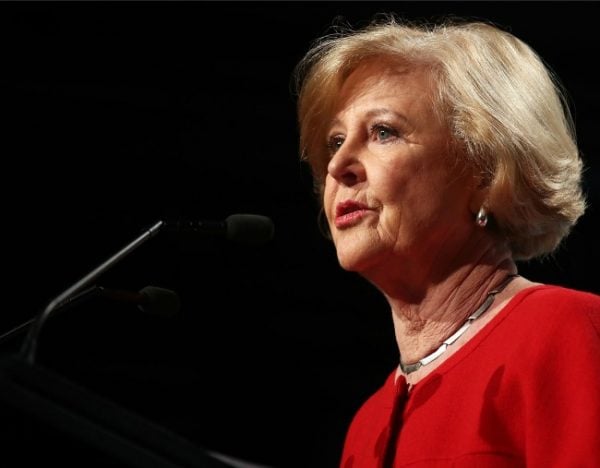Former human rights commissioner Gillian Triggs entered Melbourne law school in 1964 as one of the new generation of baby boomers. In her uniform of kilt, twin set and pearls everything seemed possible.
But when she delivered the Fanny Reading Human Rights lecture titled ‘Equality for Women and Girls? A Decade of Regression in Australia’ on Sunday, Ms Triggs said she fears society is regressing, and to achieve equality with our male counterparts, women need to do one thing in particular.
Be more vulgar.
“I was just two or three years behind Germaine Greer. She was vulgar. She was rude. She wrote things in a hurry. I don’t know what her research was like. But she was a brilliant communicator.”
If women don’t change something, and fast, Ms Triggs believes the magnificent work of female trailblazers will be undone.
“We have gathered the evidence. We have done all the right things. But it’s not working. I am wondering if we need to be a bit more out there, more strident?” she said.
“My generation of women rode a crest of a wave, [with]free university education [and] assured employment. My generation could flourish in this new world of optimism and opportunity. It is a matter of great disappointment to me that the position of women in Australia appears to be regressing.”
Ms Triggs quoted the World Economic Forum Global Gender Gap Report saying Australian women are ranked number one in the world for educational attainment with women making up 55 per cent of Australian university populations.
However, she noted that across all indices in the report Australian women now rank 46th in the world.


Top Comments
Typical Triggs, been supported by taxpayers all her life, even went through Uni courtesy taxpayers.
I'll believe she's fair dinkum about women's rights when she includes all women not just privileged women, which means, in my reasoning, aboriginal women living in abject fear and violence in far northern Australia; until she does she's all talk which, let's face it, is the easiest thing in the world.
As Ralph Waldo Emerson said "what you DO speaks so loudly I can't hear what you SAY".